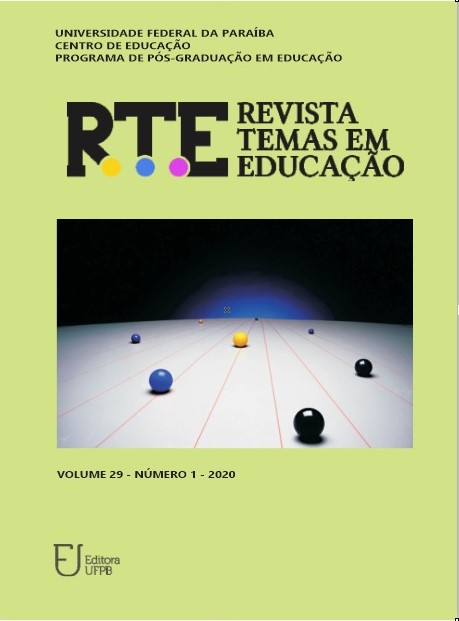THE “MEMORY” AND “MEMORY OF PROFESSIONAL EDUCATION” CATEGORIES IN THE CONCEPTIONS OF JACQUES LE GOFF, MAURICE HALBWACHS AND MARIA CIAVATTA
THE “MEMORY” AND “MEMORY OF PROFESSIONAL EDUCATION” CATEGORIES IN THE CONCEPTIONS OF JACQUES LE GOFF, MAURICE HALBWACHS AND MARIA CIAVATTA
DOI:
https://doi.org/10.22478/ufpb.2359-7003.2020v29n1.51643Keywords:
Memory, Professional Education Memory, Story, Historical CategoriesAbstract
This article deals with reflection on Memory based on the theorization of Jacques Le Goff and Maurice Halbwachs and on Memory of Professional Education (EP) under Maria Ciavatta's theoretical perspectives, as fundamental analysis categories in the study ofHistory and History of Education themes . For the accomplishment of this writing, a bibliographic research about the theme was made, as well as reflective readings aboutthe conceptions proposed by the mentioned authors. With this study, it can be concluded that both Memory and Memory of EP are essential historical categories for research in History of Education, specifically, in History of EP, as they constitute elementsthat mobilize the production of verbal narratives (statements, scriptures and printed) and non-verbal (iconographies).
Downloads
Downloads
Published
How to Cite
Issue
Section
License
Authors who publish in this journal agree to the following terms:
. Authors retain the copyright and grant the journal the right to first publication, with the work simultaneously licensed under the Licença Creative Commons Attribution that allows the sharing of the work with acknowledgment of authorship and initial publication in this magazine. . Authors are authorized to assume additional contracts separately, for non-exclusive distribution of the version of the work published in this journal (eg, publishing in institutional repository or as a book chapter), with acknowledgment of authorship and initial publication in this journal.
. Authors are permitted and encouraged to publish and distribute their work online (eg in institutional repositories or on their personal page) at any point before or during the editorial process, as this can generate productive changes, as well as increase impact and citation of the published work (See O Efeito do Acesso Livre).



















